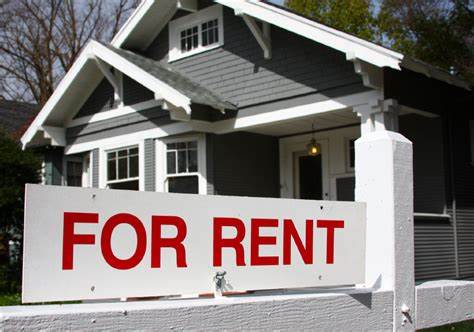However, some leasing disputes cannot be resolved through dialogue and action is required. In this case, the lessee may need to rent external assistance from a labor association or other independent leasing agency. When it comes to leasing property, each situation is unique. However, there are some common problems that are most likely to occur, including rent, repair, maintenance, privacy, and subletting.
1. Keep proof of rental payment
Every tenant is entitled to a receipt after paying the rent, so be sure to ask for a receipt as evidence. Don't throw them away because they are your payment records and they may be needed if there is a dispute about overdue rent. When the rent rises, disputes may also occur.
If you think your rent is too high, talk to your property manager first. If you are still not satisfied, please contact a representative from the US Department of Consumer Affairs or Housing to seek their advice. As a tenant, if the landlord does not repair your home, you have no right to stop paying the rent. However, if the home is not suitable for living, you can terminate the lease early without penalty.
2. Make sure the house is in good condition
When it comes to the maintenance of a leased property, the lessee and the owner (or the property manager who works on their behalf) have specific responsibilities.
The lessee is obliged to:
- Keep the house clean and reasonably clean.
- Be careful not to damage the house.
- In case of damage, the owner/agent should be notified as soon as possible. It is best for the lessee to write this message to the owner/agent while retaining a copy of the letter.
- Obtain permission from the owner/agent to install fixtures or add, renovate or renovate the home. It is best to obtain this license in writing.
- Avoid nuisance and ensure that visitors are not nuisance.
- Make sure the house is not used for any illegal purposes.
The landlord must:
- Keep the house in good repair.
- Make sure that all doors that open to the outside have a lock and all windows can be secured.
- Give the guest a key immediately after replacing the lock.
- Avoid unnecessarily disturbing the tenant.
- The landlord is usually responsible for repairs unless the tenant has caused damage.
If the tenant breaks something in the house, they will be asked to pay the bill. If you think you need repair, please contact your landlord or agent and schedule a period of work. You should not pay for it yourself or do non-emergency repairs. If the requested repairs are not completed within a reasonable time, please contact your National Consumer Affairs or Housing Department representative and seek their advice.
In most states, owners refuse to maintain their homes to default. If your landlord does violate the agreement in this way, you may have the right to terminate your lease and move out. If your rental home requires urgent repair, you should try to arrange a landlord to solve the problem. However, in some cases, you cannot contact the owner in time, and you may need to organize the repair yourself.
Each state has its own laws that specify specific conditions that require “emergency” repairs, but common examples include:
- The toilet system is clogged or damaged.
- The roof is seriously leaking.
- Flushing service.
- Gas leaks.
- Dangerous electrical or structural failure.
- Severe storm, fire or flood damage.
- Any malfunction or damage that renders the home unsafe or unsafe.
The lessee is usually entitled to compensation for repair costs as long as the initial problem is considered necessary to repair and repair below the cost threshold. Therefore, it is important that you check to make sure that the cost of any emergency repairs you arrange does not exceed this value.
Once the repair is complete, the bill can be sent directly to your property manager or paid by yourself. If you pay, you must have a receipt as proof, so that you can get compensation in the future.
3. Know your privacy
As a tenant, you have the right to privacy. This means that you should not be disturbed or interfered with by the owner or anyone acting on behalf of the owner while you are staying at the rental property. To ensure this happens, most state laws require property managers to obtain the consent of the lessee before visiting the property. However, before the property manager enters the home, the specification of when, how long, and what notice the tenant will change will vary again depending on the state.
The valid reasons for the owner or agent to enter the house include:
- Ordinary inspection. The frequency of property inspections is limited, so please contact your National Consumer Affairs Department or the Housing Department.
- Perform the duties (such as maintenance) specified in the lease.
- Property valuation.
- Showcase to potential buyers or lenders through the property.
- If the current tenant has received written notice of the move, the property is shown to the potential tenant through the property.
4. Understand the meaning of subletting
Subletting occurs when the home has a “primary tenant” (its name is on the lease) and one or more “sub-tenants” (not on the lease). The main lessee bears full responsibility for the house, and the sub-tenant has no right to enjoy the rights and protection provided under the lease agreement.
Tenants who plan to sublease must be licensed to take people. If the owner agrees, the lessee specified on the lease will be responsible for the actions of the sub-tenant. If a letter breaks the home and does not pay for the repair, the homeowner is likely to bear the cost.
If you have any concerns about subletting, please sign all tenants on the lease.




